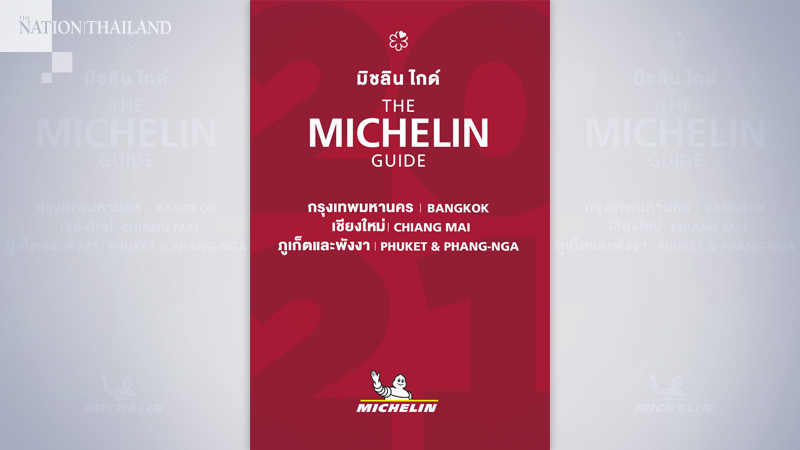
Ahead of the official launch of next year’s Michelin guide for Bangkok, Chiang Mai, Phuket and Phang-Nga on December 16, the French guide on fine-dining unveiled the 2021 Bib Gourmand selection for 2021, which features 106 restaurants and street food establishments.
Of them 65 are in Bangkok, 20 in Chiang Mai and 21 in Phuket and Phang-Nga. This year, 17 food establishments are joining the list for the first time – nine in Bangkok, three in Chiang Mai, five in Phuket and Phang-Nga, while four in each province have been promoted from Michelin Plate.
The Bib Gourmand distinction, symbolised by the famous “Michelin Man” licking his lips, recognises eateries that offer a carefully prepared three-course meal – starter, main course and dessert – for no more than Bt1,000.
Gwendal Poullennec, international director for Michelin Guides, said: “Due to the Covid-19 pandemic and subsequent economic slowdown, we want to especially boost the morale of restaurant professionals, continue to support the culinary industry and encourage local foodies to embark on more food-ventures within the parameters of current public health guidelines.
“Providing a combination of quality dishes and affordable prices, Bib Gourmand establishments serve as the ideal dining solution for budget-savvy foodies, and play a significant part in keeping Thailand’s culinary scene alive during these tough times.”
In the soon-to-be-released fourth edition of the Michelin Guide for Thailand, the 17 new additions to the Bib Gourmand list include Bangkok’s Burapa, a restaurant with the Orient Express theme that takes diners on a journey East-by-Northeast to taste unique, flavoursome cuisine that joins culinary elements from Isaan and Trat; Chang-Wang-Imm, a restaurant in a charming two-storey house built in 1957 on the banks of the Chao Phraya River serving delicious wallet-friendly Thai food that highlights traditional cooking techniques and flavours; and Phed Phed Bistro, a restaurant with minimalist décor and wire mesh accents focusing on comfort food made with quality ingredients. It also includes Chiang Mai’s Go Neng (Wichayanon), a street food establishment that has been around for more than three decades specialising in deep-fried dough sticks, “pa tong go”, that boast puffy perfection and crispy texture, uniquely shaped as crocodiles, dinosaurs, dragons, and elephants; Phang-Nga’s Hok Kee Lao, a Thai-Chinese restaurant beloved for decades for its delicious and affordable banquet-style food; and Tokola, a restaurant in lush gardens next to Khuekkhak beach serving intensely-flavoured traditional and southern Thai dishes using locally sourced ingredients as well as ancient and original cooking methods and Phuket’s Salaloy, a casual Rawai Beach eatery famous for a good selection of fresh seafood that are freshly cooked to order.
The four restaurants promoted from the Michelin Plate to Bib Gourmand are Bangkok’s Somtum Khun Kan, a restaurant offering its famous “som tam” plus a wide variety of authentic Thai and Thai-Isaan dishes; Chiang Mai’s Charoen Suan Aek, a neighbourhood restaurant loved for its authentic and boldly flavoured northern Thai dishes that rely on indigenous, seasonal ingredients; Phang-Nga’s Nai Mueang, an authentic Southern Thai restaurant featuring a charming retro ambience with old tin-mining memorabilia, record players, sewing machines and other nostalgic bric-a-brac; and Phuket’s Tu Kab Khao, an elegant, atmospheric restaurant set in a grand Chino-Portuguese building, serving tasty Southern Thai cuisine.
“By expanding the geographical scope of this year’s selection, Michelin Guide inspectors found more eateries worthy of a Bib Gourmand rating. Thus, we would like to encourage local foodies to go on tasting ventures of their own, and discover by themselves – as our inspectors did – that Thailand is a true haven for good value, quality, and reasonably priced dining experience,” concluded Poullennec.


